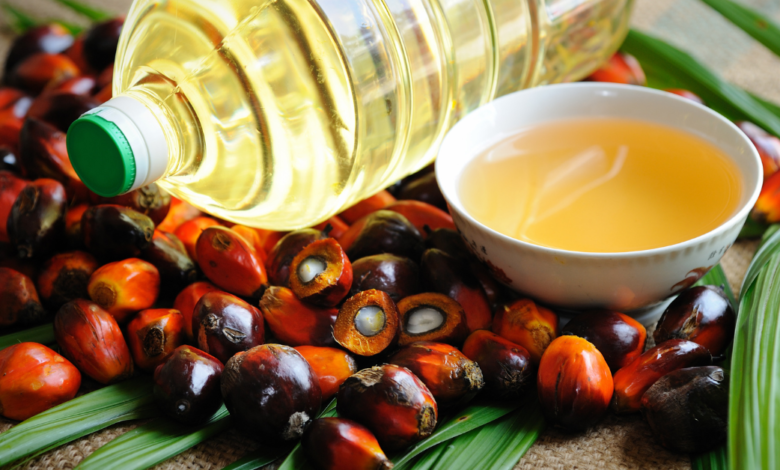Is Palm Oil Really Bad for You?

The controversy surrounding palm oil
The debate over palm oil has been fueled by a range of factors, including health concerns, environmental issues, and ethical considerations. Critics argue that the high saturated fat content in palm oil can contribute to an increased risk of heart disease, obesity, and other health problems. Additionally, the large-scale cultivation of oil palm plantations has been linked to deforestation, biodiversity loss, and greenhouse gas emissions.
On the other hand, proponents of palm oil highlight its versatility, cost-effectiveness, and potential health benefits when consumed in moderation. They also argue that sustainable palm oil production practices can mitigate the environmental impact and promote responsible cultivation.
Debunking misconceptions about palm oil
Despite the controversies, several misconceptions about palm oil have perpetuated, often fueled by misinformation or incomplete data. Let’s address some of these misconceptions:
- Myth: Palm oil is unhealthy because it’s high in saturated fat. Reality: While palm oil does contain a significant amount of saturated fat, not all saturated fats are created equal. The type of saturated fat found in palm oil, called palmitic acid, has been shown to have a neutral effect on cholesterol levels when consumed in moderation as part of a balanced diet.
- Myth: Palm oil is a major contributor to heart disease. Reality: Studies have not conclusively linked palm oil consumption to an increased risk of heart disease. In fact, some research suggests that the antioxidants present in palm oil may have beneficial effects on cardiovascular health.
- Myth: Palm oil is solely responsible for deforestation. Reality: While the expansion of oil palm plantations has contributed to deforestation in certain regions, other factors such as illegal logging, urbanization, and agricultural practices also play significant roles. Sustainable palm oil production practices aim to address these environmental concerns.
Health benefits of palm oil
While the health implications of palm oil have been widely debated, it’s important to recognize that this versatile oil offers several potential benefits when consumed in moderation as part of a balanced diet:
- Rich in antioxidants: Palm oil is a good source of antioxidants like vitamin E, carotenoids, and tocotrienols, which may help protect cells from oxidative damage and support overall health.
- Promotes brain health: The tocotrienols found in palm oil have been linked to improved brain function and a reduced risk of neurodegenerative diseases like Alzheimer’s.
- Supports bone health: Palm oil contains nutrients like vitamin K and magnesium, which are essential for maintaining strong bones and preventing osteoporosis.
- Improves skin health: The vitamin E and antioxidants in palm oil can help protect the skin from free radical damage and promote a healthy complexion.
Environmental impact of palm oil production

The environmental impact of palm oil production has been a significant concern, with issues such as deforestation, biodiversity loss, and greenhouse gas emissions being widely discussed. However, it’s essential to recognize that sustainable and responsible practices can mitigate these impacts:
- Deforestation: Expansion of oil palm plantations has contributed to the destruction of natural habitats, particularly in regions like Southeast Asia and South America. Sustainable initiatives aim to promote the use of existing agricultural lands and protect high conservation value areas.
- Biodiversity loss: The conversion of diverse ecosystems into monoculture plantations has led to a decline in biodiversity, threatening various plant and animal species. Responsible palm oil production involves implementing measures to protect and conserve biodiversity.
- Greenhouse gas emissions: The process of clearing land for plantations, as well as the use of fertilizers and pesticides, contributes to greenhouse gas emissions. Sustainable practices focus on reducing these emissions and promoting more eco-friendly cultivation methods.
Sustainable palm oil initiatives
In response to the environmental and social concerns surrounding palm oil production, various organizations and initiatives have emerged to promote sustainable and responsible practices:
- Roundtable on Sustainable Palm Oil (RSPO): The RSPO is a non-profit organization that has established global standards for sustainable palm oil production. Members of the RSPO commit to adhering to these standards, which cover environmental, social, and economic aspects of palm oil cultivation.
- Certified Sustainable Palm Oil (CSPO): CSPO is a certification system developed by the RSPO to ensure that palm oil has been produced in an environmentally and socially responsible manner. Products bearing the CSPO label have met stringent criteria throughout the supply chain.
- Sustainable Palm Oil Policies: Many companies and organizations have implemented their own sustainable palm oil policies, committing to sourcing palm oil from responsible and certified sources. These policies aim to promote transparency and accountability in the supply chain.
Alternatives to palm oil
While palm oil has become a ubiquitous ingredient in various products, some consumers may prefer to explore alternatives. Here are a few options to consider:
- Coconut oil: Derived from the meat of mature coconuts, coconut oil is a popular alternative for cooking and baking. It has a distinct flavor and is rich in medium-chain triglycerides (MCTs).
- Olive oil: Renowned for its health benefits and versatility in cooking, olive oil is a staple in the Mediterranean diet. It is rich in monounsaturated fatty acids and antioxidants.
- Avocado oil: Extracted from the pulp of avocados, avocado oil is a nutrient-dense option with a mild flavor. It is high in monounsaturated fats and vitamin E.
- Sunflower oil: Sunflower oil is a popular choice for frying and baking due to its high smoke point and neutral flavor. It is rich in polyunsaturated fatty acids.
It’s important to note that each alternative has its own unique properties and environmental footprint, so it’s crucial to make informed choices based on your specific dietary needs and preferences.
Making informed choices as a consumer
As consumers, it’s essential to be aware of the potential impacts of our choices on our health, the environment, and society. When it comes to palm oil, making informed decisions involves:
- Reading labels: Look for products that clearly indicate the use of sustainable or certified palm oil, or consider alternatives if palm oil is a concern.
- Supporting sustainable initiatives: Choose brands and companies that prioritize sustainable and responsible palm oil production practices, or those that have committed to sourcing from certified sources.
- Educating yourself: Stay informed about the latest research and developments related to palm oil and its impact on health, the environment, and local communities.
- Balancing priorities: Consider your personal values, dietary needs, and environmental concerns when making choices about palm oil consumption or alternatives.
Palm oil in everyday products
Palm oil is a versatile ingredient found in a wide range of everyday products, from food items to cosmetics and cleaning supplies. Here are some common products that may contain palm oil:
- Food products:
- Baked goods (bread, pastries, cookies)
- Snacks (chips, crackers, popcorn)
- Spreads (margarine, peanut butter)
- Instant noodles and soups
- Frozen foods (pizza, ice cream)
- Cosmetics and personal care products:
- Soaps and shampoos
- Lotions and creams
- Lipsticks and makeup
- Toothpaste and oral care products
- Household products:
- Detergents and cleaning supplies
- Candles and waxes
- Paints and coatings
- Industrial products:
- Biodiesel and biofuels
- Lubricants and greases
- Plastics and rubber products
It’s important to note that not all products containing palm oil are explicitly labeled as such, making it challenging for consumers to identify its presence.
Conclusion: weighing the pros and cons
The debate surrounding palm oil is complex, with valid arguments on both sides. While it offers versatility, affordability, and potential health benefits, concerns about its environmental impact and ethical production practices cannot be ignored.
As consumers, it’s crucial to make informed choices by educating ourselves, supporting sustainable initiatives, and considering alternatives when necessary. By weighing the pros and cons and aligning our choices with our personal values and priorities, we can contribute to a more sustainable and responsible future.
If you’re interested in learning more about sustainable palm oil production or finding products that prioritize responsible sourcing, consider exploring resources from organizations like the Roundtable on Sustainable Palm Oil (RSPO) or the World Wildlife Fund (WWF). These organizations offer valuable information, certifications, and guidelines to help you make informed choices as a consumer. Additionally, many brands and companies now proudly display their commitment to sustainable palm oil practices, making it easier to identify and support responsible products. By staying informed and making conscious decisions, you can play a role in promoting a more sustainable and ethical future for palm oil production.




